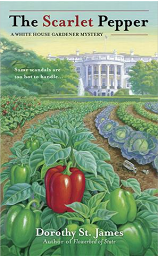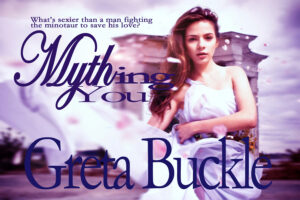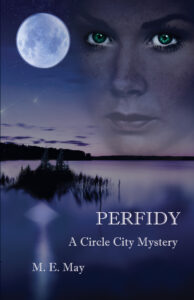Category: Editing
E. Tip of the Week: Character Count
Characters are the life of every story so it’s important to treat them with respect and pay close attention to the details. However, it’s easy to get carried away and forget about some of the “don’ts” that come along with character building.
- If your reader needs to keep a notebook by their bedside every time a new character is introduced in your book, you’ve got too many characters.
- If you are having trouble keeping your characters straight in your own head, it’s time to limit the number of characters in the story.
- If your characters are screaming to have their own story, and not be a supporting role, it might be time to start an outline on a new story.
- If you have multiple characters whose names all start with the same letter like “s” or “m” consider changing two of the characters names to start with a different letter so the reader can keep the characters straight in their head. Or, decide if you really need those other characters.
- If you have a character just so the main character isn’t talking to themselves out loud, is that “friend” really necessary.
There are many more character “do’s” and “don’ts” but these are just a few I thought worth mentioning now. What are some of the “do’s” and “don’ts” you’ve learned over the years?
E.Tip of the Week: When an IP Lawyer Is Important
Recently, an author emailed me about our editing services. She was interested in revising the novel she had sold in the 1990s, and writing a sequel to it. However, what we discovered about her contract with her original publisher was mortifying.
I won’t go into the details of her specific situation. However, I can not stress enough how important it is to know what rights to your work you as an author are signing over when you sign a contract with a publisher. Not only that, but learn about who you are signing the contract with for your books. Are they a reputable publisher? How do they treat their authors? Do they sell their books on their website?
If you’re not familiar with legal jargon, ask your family lawyer to put you in touch with a trusted Intellectual Property lawyer. If your family lawyer doesn’t know one, contact us at Written Dreams. There are several IP lawyers we know of, and we’ll point you in the right direction.
Introducing Susan Pawlicki, Editor at Written Dreams
As Written Dreams expands to be a great resource for authors, I look for the best people to help grow this business with me. I was so impressed with Susan’s editing skills, it seemed the perfect fit for her to be a part of our team. Introducing Susan Pawlicki, our talented non-fiction and fiction editor at Written Dreams!

WD: Tell us about your family. What do they think of your editing?
SP: I have two daughters at home, Emily, who is twenty, and Sarah, who is seventeen. Both are students at the local college; Emily is studying art education and Sarah is still in the decision making stage. (Historian? Lawyer? Psychologist? ) Both girls have become avid readers and writers, which is a true joy in my life. They are most happy about my editing for Written Dreams: I truly enjoy the process of editing and I’m a happier person when I have a project at hand.
WD: What are your hobbies? What do you like to do in your free time?
SP: I’m a voracious reader who enjoys everything from “Paradise Lost” to Calvin and Hobbes, so I always have a book or two going. My daughters are both great readers as well, so years ago we designated one table in the house to be the “Reading Table”—right now it has (let me check) twelve books on it ranging from a history of snowflakes to Robert Penn Warren’s All The King’s Men—I’m teaching it in a couple weeks—to a volume on Mary Todd Lincoln and her maid/confidante, Elizabeth Keckly.
In the summer I’m an enthusiastic bike (the pedal kind) rider and outdoor runner; at the moment, though, I’m running on a treadmill to get ready for the Illinois Half-Marathon at the end of April. I like riding the bike because you can cover a fair amount of distance in a short period of time, and out here in rural Illinois it’s just beautiful in the spring, summer and autumn—there’s always something to be discovered on a ride. Running makes me feel fit and healthy, and it challenges both my self-discipline and my will. It makes me a stronger person.
WD: What compelled you to get into editing?
SP: I’ve always loved writing and about the time I began teaching writing at the local college, a friend who was starting a business asked me to look over some writing for him. The volume of writing grew to the point he felt uncomfortable asking me to do the work as a friendly gesture, so voila—I became an editor. And the rest is history! 🙂
WD: Who are some of your favorite authors to read?
SP: My favorite author is F. Scott Fitzgerald. He’s my favorite. What a vocabulary that man has! Emerson and Thoreau. I’m a big fan of Kazuo Ishiguro, too; reading Remains of the Day was a revelation to me; the writing is beautiful without calling attention to itself and rarely has a character been created so three-dimensionally. Hemingway. C.S. Lewis—The Screwtape Letters seems mandatory reading for consideration of good and evil. Terry Pratchett—how can one man be so profound and yet so funny? Robert Penn Warren may well be joining the list; I’m reading All The King’s Men to teach it for a homeschool high school literature class, and his writing thus far is extraordinary!
WD: Who, in your life, has had a large impact on your way of thinking?
SP: Ralph Waldo Emerson and Henry David Thoreau are up there at the top of the list. Both have greatly influenced my religious and spiritual beliefs, as well as my philosophy of daily living. My daughters, who over the years have brought up or pointed out the obvious that my adult brain was overlooking, have also been a great influence.
WD: What compels you to continue reading a story?
SP: Real characters, an initial intriguing plot element. The Twelve Tribes of Hattie begins with a young girl trying to save her twin infants from dying of whooping cough—I was sucked into the story line immediately! Ishiguro’s The Unconsoled creates a dream-like atmosphere in which you’re unsure of what is real and what is not right from the first page.
WD: What advice would you share with beginning writers?
SP: Write, and then write some more. Don’t get pulled away from your writing by outside distractions, and don’t give up too soon. This business of writing takes a lot of hard word and discipline.
WD: What advice would you share with seasoned writers?
SP: See advice for beginning writers. I don’t think the process ever changes that much…Even when you’ve had a measure of success, writing is about putting part of yourself out in the world for others to see, and that in and of itself can be scary or discouraging.
WD: What is one goal you’d like to accomplish in 2013?
SP: I’m a goal-oriented person, so it’s hard to limit myself to one! I’d like to help multiple authors get published. I want to run a 2:45 half marathon. And I’m taking my own advice and writing a story a week—if you’re trying the project, too, feel free to drop me an email—we can commiserate! 🙂
Thanks, Susan, for being our guest today so others can learn more about you! If you’d like to contact Susan, you can email her at Susan@writtendreams.com. To see a list of our services go to: writtendreams.com
Special Post: Best Novel of the Year?
One of the cool things about being an editor is getting the chance to work on so many wonderful novels. One of the very special novels I’ve had the pleasure to edit is The Scarlet Pepper, a White House Gardener Mystery, by Dorothy St. James.

With enough votes, The Scarlet Pepper could be put on the ballot at Malice Domestic for Best Novel of the Year -2012. And wouldn’t that be cool?
Words cannot express the joy I feel for just knowing other people enjoyed that novel just as much as I enjoyed working on it with Dorothy.
Formatting For A Clean Manuscript
E. Tip of the Day: After finishing the draft of your novel, and before sending it to your editor, do a quick proof on it. Don’t forget to check for these things:
1) No extra spaces between words or sentences: it should be one space between words, and depending on your preference one or two spaces between sentences. I prefer to use one space throughout the manuscript. It makes global searches faster. 🙂
2) Missing punctuation: make sure every sentence has punctuation.
3) Misspelled words or missing words: spell check is helpful but doesn’t check for things like a missing “c” in “exited” when it should be “excited.” Your editor should do their job and help with this, however it’s great for the writer to get into a habit of checking these things.
4) Chapter Headings are consistent: do you want your chapter headings centered? Bold? A different font size? Three hard returns above the first paragraph of your chapter? Whatever you decide, consistency is important.
5) Paragraph indents, margins, and spacing between paragraphs is consistent: sometimes this can be tricky to fix after several drafts of revising, but if you begin your novel in a certain format with specific spacings, there shouldn’t be too many issues down the road for you. Be aware of this early on.
6) Your contact info is in the top left hand corner of the first page of your manuscript: This is nice to know, just in case your editor needs to contact you. 🙂
If you’re having trouble with any of these, let us know and we can help! 🙂
Writer’s Wednesday: New Mystery Author, M.E. May
Today I’d like to introduce new author, M.E. May. I had the pleasure of editing her novel, Perfidy, published by True Grit Publishing, an imprint of Weaving Dreams Publishing, and I’m so excited to have her join us today! Please help me in welcoming M.E. May to The Editing Essentials.
M. E. May was born in Indianapolis, Indiana, and now lives near Chicago with her husband, Paul, and Husky, Iris. Her two children and four wonderful grandsons all live in central Indiana. She studied Social and Behavioral Sciences at Indiana University, where she learned about human nature and social influence on behavior as well as finding her talent for writing. Her first novel, Perfidy, is a crime thriller in which a young woman’s desperate search for her missing mother reveals long held secrets and lies that will change her life forever. This the first book in M. E. May’s Circle City Mystery Series. To learn more, visit her website at: http://www.memay-mysteries.com
WD: Did you choose the genre, or did the genre choose you?
MEM: That’s an interesting question. I would say the latter. For many years, I told myself I had a book in me. At one point, I contemplated writing a comical piece about the dating world. Anyone who’s been out there knows what I mean.
One of my favorite genres is fantasy, but I believe it takes a special person to create a new world like in JRR Tolkein’s The Hobbit, and Lord of the Rings.
The mystery genre chose me, because this is where my talents flourish. My interests in psychology, sociology, and criminal justice prevail. It’s been an interesting journey from reading and trying to solve a mystery to creating the clues that lead readers to a solution. Through this process, I’ve learned a great deal about police procedure, forensics, private investigation, and much more that I may not have taken the time to research had I not been creating these novels.
WD: What was your inspiration for Perfidy? A person, place, an event? How did you get started?
MEM: In 2008, my husband and I agreed I should leave my full-time job and take a year to get started on writing. I will admit, it took several months for me to really sink my teeth into it once I had the premise for Perfidy.
In 2007, Lisa Stebic and Stacy Peterson disappeared without a trace. These types of cases don’t generally stay in the news very long, but Stacy’s husband was quite verbal. As a police officer, he apparently didn’t feel a need for discretion. He continually proclaimed his innocence and claimed that Stacy took off with another man.
The situation of a police officer’s wife going missing was the spark which brought the idea behind Perfidy alive. Of course, my imagination took over and my story doesn’t end the way many feel Lisa and Stacy’s story end.
I used Indianapolis as my setting because it’s my hometown and I know it well. The police department there has been great about answering any questions regarding police procedure. The Indianapolis governmental website, www.indy.gov, carries a lot of good information about how the city governmental offices are structured and provide good contact information.
I try to keep it real. I want an Indianapolis police officer to read Perfidy and be able to tell others, “That M. E. May really knows her stuff.”
WD: I understand Perfidy is the first novel in a series. Are you afraid the series will become dull or difficult to write after a while?
MEM: When I designed this series, I decided to create it so that there was a different protagonist in each subsequent book. You will see many of the predominate characters in each book, but the focus will be on someone different.
For example, Perfidy centers around Mandy Stevenson. She is the daughter of Captain Robert Stevenson, the Commander of the Homicide and Robbery Division. In Perfidy, you will meet several police officers from Homicide and from the Missing Persons Unit. One of the homicide detectives, Erica Barnes, will be the protagonist in book two of the Circle City Mystery Series, entitled Inconspicuous (to be released in September 2013).
WD: If you could be any of the characters in your novel, who would you be?
MEM: The protagonist, Mandy Stevens. She is a mixture of my personality traits and beliefs. However, she also has a strength I wished I had possessed at her age. Although a bit naïve as are most twenty-two year olds, she has a confidence and determination I admire.
WD: Is it more difficult for you to write: good characters or bad characters? And why?
MEM: “Good” characters are harder for me. Although they are the “good guys,” they are human and cannot be perfect or they will not be realistic. They must have flaws. As a reader, I like characters with depth. In order for me to relate or to decide how I feel about a character, I must have those elements which irritate me about them as well as those that endear them to me.
The “bad guy” is much easier. No one is supposed to like him/her. It also gives me the opportunity to look at the world through a different type of mind. That’s not to say the reader won’t feel some sympathy for the antagonist, depending upon what has led him/her to commit the crime. Someone who is having a psychotic break with reality would gain more sympathy than a sociopath who has no regret for what he/she has done.
WD: How do you feel about writing short stories?
MEM: When I started this venture, I entered several flash fiction contests. Many of those only allowed 500 words, some less. I found that very difficult. I believe I am just one of those people who cannot tell a story without going into a lot of detail.
Then I joined the Speed City Chapter of Sisters in Crime. They asked if I would write a short story for their upcoming anthology called Hoosier Hoops and Hijinx. I was hesitant at first as I lacked confidence in my ability to produce an adequate story in short form. However, they allowed me 7,500 words and somehow the story just flowed. They have accepted my story, “Uncle Vito and the Cheerleader” and the anthology will be released in October 2013. This may have been the boost I needed to give short stories another shot.
WD: Have you thought about crossing genres, or writing a stand alone?
MEM: I think a stand-alone is a possibility, but I don’t have anything in mind at the moment. I’ve thought about another series about a private investigator, but that’s still in the planning stages. Crossing genres—at this point, I don’t see it happening. As I said earlier, my interests lie in areas that mesh with the mystery genre. I believe writing these stories is my destiny.
Thank you so much for sharing with us today! If you have questions for M.E., feel free to post comments for her. She’ll be with us all day. Thank you!
Take Action!
E. Tip of the Day: Take action!
It’s important to have a continuous flow of activity for your characters–whether they are renovating a house, cleaning their closet, or skydiving–readers want to read about what the characters are doing.
And action is the best way to do this. With their actions, show how the characters react to certain issues that in turn show who that character is by showing their emotional responses. I’m not saying have your character weep at the drop of a hat. I’m talking about action. Show the good deeds of the character, or their devious thoughts. Show how important it is to that character to have good will by donating their time around the holidays. Show your character actually at a food pantry, or homeless shelter interacting with people in their community. Show your characters doing things in every day situations readers can relate to. Do this, and your readers won’t be bored.
If you have questions on whether or not your plot needs a bit more action, feel free to contact us. We’ll help you improve your plot so your readers will be intrigued about your story. 🙂
Writer’s Wednesday Guestblogger: New Author Greta Buckle
I’m happy to introduce new author, Greta Buckle, as our guest today. I met Greta through Brenda Novak’s Online Auction for Diabetes Research. We’ve worked together on several projects, and it was a real pleasure for me to work with her on today’s feature novel, Mything You. It’s been a pure joy to get to know her and watch her grow as a writer. Please welcome Greta!
 Greta Buckle grew up in Irish Catholic Boston before moving to the Miami sun. She’s worked in engineering, then in law. After realizing she hates clients, she became a high school teacher. Teaching is fun, but writing is her passion. She wrote one hundred and one fan fiction stories online before deciding to transition into writing her own stories. Never ask her about republishing her fan stories from age eleven- horribly written stories of princesses. Greta dreams of writing full-time, where her barista can make her coffee, and a walk on the beach can motivate her tales. The ‘Theseus’ story came to her when she was a freshman in high school when her English teacher, a nun, told her how life was hard and tragedy teaches lessons. The sci-fi stories come from years of Star Trek and Star Wars fandom. Greta’s love of writing has kept her centered and focused. How is she crazy? The voices in her head are characters in novels, and she’s not insane. Visit her website at: http://gretabuckle.com/
Greta Buckle grew up in Irish Catholic Boston before moving to the Miami sun. She’s worked in engineering, then in law. After realizing she hates clients, she became a high school teacher. Teaching is fun, but writing is her passion. She wrote one hundred and one fan fiction stories online before deciding to transition into writing her own stories. Never ask her about republishing her fan stories from age eleven- horribly written stories of princesses. Greta dreams of writing full-time, where her barista can make her coffee, and a walk on the beach can motivate her tales. The ‘Theseus’ story came to her when she was a freshman in high school when her English teacher, a nun, told her how life was hard and tragedy teaches lessons. The sci-fi stories come from years of Star Trek and Star Wars fandom. Greta’s love of writing has kept her centered and focused. How is she crazy? The voices in her head are characters in novels, and she’s not insane. Visit her website at: http://gretabuckle.com/
What event/person made you interested in writing?
There wasn’t one event, exactly. I spent years and years writing fan fiction as a mental release. I wanted to tell stories not seen on TV. What happened to me to write full length novels was a realization. I was unhappy with my life, and no book told the story I wanted to see. I was so tired of not reading the story I wanted to read, then I realized why not write your own? I wrote it, finished, then asked myself what do I do now? This set off my interest in pursuing more. Do you know my eighth grade class in the yearbook voted I would most likely be a writer? My reaction then was to go home and cry. In my head I thought writers lived in the fortress of solitude like Superman’s home and never got to go outside. Such a strange reaction! I giggle over this now.
What made you interested in the Greek myths?
My family are nerds. My sister and brother had an argument in the ancient ruins of Rome over the Latin translation they were both doing there. At the dinner table we might discuss who killed who during the French Revolution. And, my father is a huge history and science fiction fan. Unlike most of my friends, I tended to know every story in the Bible and myths. Plus I took a class on the classics in high school. Either way, I’m a nerd and I love the stories.
 What was your inspiration for Mything You?
What was your inspiration for Mything You?
I came home from a writers’ conference in Chicago, then I saw an open call for stories on Ancient Athens or Rome. They were looking for dark and gritty with more sex, so it wasn’t like my novel at all. Unlike the 50 Shades novels, I won’t write what I don’t feel. I was pumped from the conference, and the thoughts of the Ancient world had me buzzing. I penned the outline. I wrote the first chapter. Then I watched a movie starring Theseus to confirm… no my story is nothing like that movie at all. Good. At that point, I penned the story. I wanted to retell an ancient myth as a romance, and, of course, the characters had to be young. Theseus is in search of his father, and thirty year old men aren’t looking for adventure the same way a newly turned man is. In my rendition, love helps him win everything.
Tell us about your characters–Theseus and Ariande. How did you come up with these characters? Were your characters–the way they act in your novel– inspired by anyone specifically?
I wish I knew someone on an epic adventure. I’d have joined them. In my head I saw Theseus as an Indiana Jones, or Prince of Persia type character. The man on his journey, larger than life action hero intrigues me and grabs my attention. He’s on a mission, and will accomplish his goals.
Ari had to be strong-willed in order to keep up with Theseus. She was not to be weak and she’s not going to kill herself because a man might leave her. Vulnerable, yet strong. Not just the hero must save her girlfriend, but she’s not the kick butt, doesn’t need a man because she’s strong and hard either. Guess I was going for Drew Barrymore type in Charlie’s Angels, which is hard to mix. She’s strong yet soft.
What else can you share about yourself personally?
I worked from high school, through college, and after in the Engineering department of a major company. In high school, I made the photo copies of the plats. Talk about bored! I decided to go to law school. Think Legally Blond, though I’m not blond. In school, I thrived. I tutored people on course work. Then I had to get a job in the legal field. I had to meet clients… with problems…eww. Yes, I met interesting people, and I met lawyers who worked their entire lives, giving eighty hours a week, to Lady Justice and the reward was a huge alcohol bill and a lonely life. I couldn’t live like that either. So, again, I quit, and became a teacher. While teaching is a rewarding job, it’s not everything I want. Writing is the one constant in my life.
I have a cat, and his name is Anakin Skywalker though he’s yet to display any evil tendencies, at all. I’m excited about the Disney merger and new Star Wars movies.
I’m not married, no children, etc. But I do have two parents, two sisters and a brother. One sister has read my stuff, but the rest of the family hasn’t. I love my family, but I always call them the crazy Scorpio nest. Everyone but me, the exception, are all water signs, mostly Scorpios. I’m the odd one in the family. But if anyone knows Scorpios, you know they are intense. Growing up in that household meant living in a constant state of defensive warfare. Shouldn’t shock anyone I’ve turned to writing.
What is your plan for future novels?
Writing has taken over my life. Let’s see I’m penning a sci-fi short, which Brittiany, my editor, doesn’t know about yet. I always wanted to write my own version of Star Trek, but for that to happen you must have a ship full of interesting characters.
I’m writing a sequel right now for Haemon and Antigone. If anyone is familiar with the classics, I will state now, Antigone will not die. I never thought she should have. I’m mixing Antigone and Haemon’s love story with the original tragedy and the Seven Against Thebes myths. Add in a love story. Minus out the tragedy, and I’ve set up a nice war for a city state.
But what I’m really excited about is how we’re getting to work on my contemporary fantasy mixing in the Greek Gods to modern age, with a science fiction, Ancient Aliens angle. One epic bad guy. Seven love stories that must be told to break a curse and restore powers. This is the story that made me want to write. It started with the question, what if you were a god or had super powers, but you never knew it? You lived an ordinary life, never accessing your potential.
Which authors do you enjoy reading?
This is a hard question. I read so many throughout the years. This is the equivalent of ‘the what’s your favorite movie’ question. My dad worked for Warner Brothers before I was born. I’ve seen thousands and read even more than that. If I state Julia Quinn, Nora Roberts, JK Rowling, I skip a hundred more.
Thank you, Greta, for sharing with us today! If you’d like to leave a comment for her, she’ll be checking in throughout the day. Thank you!
Please Clarify…Please Clarify…Really, I Need More Clarification Here
E. Tip of the Day: Clarification
When an editor says, “Please clarify,” or “More details are needed here,” or “Clarify the reasoning here” what does it mean exactly?
Every editor is different, with varying opinions on what needs clarification in any specific story. As an editor, I tend to look at this way: if I’m confused about what is happening in a story, there’s something wrong, and that something needs to be fixed. Immediately.
Why? The fast answer: Because it’s not a good thing to alienate and confuse the readers. 🙂
As an author, what can you do to understand better what the editor is trying to tell you? Listen. Ask questions. Ask your editor to clarify to you what they need more details about, if it’s not clear in the comments they’ve made in your manuscript. Ultimately, what they’re telling you, is there’s not enough details being conveyed to the reader in order for the reader to understand what is happening in the story. If the reader is confused, that’s not good. So, when an editor mentions clarifying an area, whether it’s setting, eye color, or something happening in the plot, you should stand up and take notice. And then, find a solution that fits both your needs as the author, and the reader’s needs for understanding.
Here’s a cheat sheet–in my opinion–of areas that usually need clarification and how they can be addressed. And please, keep in mind, every novel is different, so some areas in a story may be more important to clarify than others.
1) If the comment is made on dialogue and is something the reader is explaining that happened, ask yourself: how much does this comment pertain to the overall plot? If my ending will be unaffected by anything I add to the story, how important is it that I add more details (in this specific place)? Or, is this something that can be cleared up later?
2) If the comment is made on setting, and the setting is as much a character as the rest of the cast of characters, it’s probably a good idea to make sure what is being conveyed makes sense. Ask yourself literally–maybe even by making a drawing of a chicken’s scratches map–if I took this route, would I get to my destination?
3) If the comment is made on your character’s personality, in my opinion, that’s a biggie. If your characters are inconsistent, it’ll make your novel a much more difficult read. The story is all about the characters, and when it comes down to it, is the reason why the readers are reading the story. So, ask yourself, why is my character acting this way here? How are they acting differently than in the previous chapter? Why is it important for them to act this way, or can I have them act more like themselves, and still get my point across?
Make your revisions based on your best judgements. Take time to read your work out loud after the revisions have been made. Put yourself in the reader’s shoes, not having any of the back story in their heads before they begin reading. If you’re still confused, and the editor is unhappy with your choice of clarifying on the revisions, it might be time to a) find a new editor, or b) do a self-evaluation on your writing style. It’s important to work with an editor who understands where you as an author are coming from, and what the story is at heart that you’re trying to tell. Editors are there to help the process, not hinder it. 🙂




